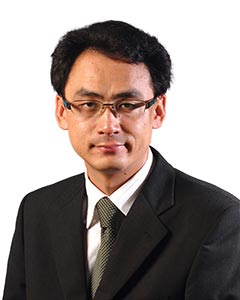When a foreign company acquires shares in a Japanese company, it may be required to make a filing before or after the event pursuant to foreign investment laws, including the Foreign Exchange and Foreign Trade Act.
On rare occasions, the Ministry of Finance and the Ministry of Economy, Trade and Industry may request that changes be made to the share acquisition plan, or even demand that the plan be halted.
Filing requirements
In principle, when a foreign investor makes an inward direct investment, it is required to make a filing with the Minister of Finance and other relevant ministers through the Bank of Japan within 15 days of the transaction. Failure to make such a filing can result in imprisonment or a fine.

Partner
Anderson Mori and Tomotsune
If a foreign company first establishes a Japanese subsidiary, then that subsidiary acquires the shares either alone or together with other foreign individuals or entities, the same controls apply. However, if a Japanese company that has an ownership relationship with a foreign company makes the acquisition, the controls will only apply where the foreign entity or entities hold more than 50% of the voting rights.
If the target is a listed company, the controls do not apply if less than 10% of its shares are acquired. However, if the target is not listed, there is an obligation to file even if only a small quantity of shares is acquired.
Exceptional cases
In rare cases, such as when an industry relating to security or public safety is involved, a filing must be made within six months before the transaction. The waiting period after the filing is 30 days, although the ministries normally complete the review within two weeks after the filing, and in simple cases may only require five days. However, such period may be extended up to four months, and if the minister deems that a review by the Council on Customs, Tariff, Foreign Exchange and other Transactions is necessary, a further extension of one month may be granted. If, in the end, the minister deems the transaction to pose a problem for state security, he may suspend the transaction.
In cases where only after-the-event filing is required, no cancellation of a share acquisition will be made by way of a government order after the transaction has been completed.
J-Power example
An example of a problematic investment in a Japanese company by a foreign investor was the attempt in April 2008 by a UK fund, The Children’s Investment Fund (TCI), to acquire Electric Power Development (known in Japan as J-Power), a large company in the power retailing industry.
TCI initially held 9.9% of the shares, a quantity that did not conflict with foreign exchange law controls. Hoping to increase its holding to 20%, TCI submitted an application to the Ministry of Finance and the Ministry of Economy, Trade and Industry. The resulting review was extended to its maximum length of five months, and a review was also conducted by the Council on Customs, Tariff, Foreign Exchange and other Transactions.
J-Power is the only company in Japan with a supply grid that links up with local power companies throughout the country. It is also planning to construct a nuclear power station. Furthermore, TCI is a very active shareholder, renowned for aggressively exercising its shareholder rights, even outside its home jurisdiction.
Accordingly, having considered other examples of TCI’s offshore investments, the Ministry of Finance and the Ministry of Economy, Trade and Industry deemed that if they recognized TCI’s increased shareholding, this would have a significant effect on J-Power’s operations which in turn would have an adverse effect on investment in the supply grid and the construction and operation of the nuclear power station. They suspended the transaction.
Controls on specific industries
In addition to the general foreign investment controls mentioned above, there are also other foreign investment controls that apply to specific individual industries.
For example, based on a special law, foreigners are prohibited from directly or indirectly holding more than one-fifth of the voting rights in Nippon Telegraph and Telephone Corporation, Japan’s largest communications provider. Foreigners are also forbidden from becoming directors of that company and of its local affiliates, Nippon Telegraph and Telephone East Corporation and Nippon Telegraph and Telephone West Corporation.
Japan has also formulated legal controls applicable to the broadcasting industry. Several years ago, when Livedoor acquired a large number of shares in Japan Broadcasting Corporation, it issued convertible bonds in order to raise the funds necessary to make the purchase. Lehman Brothers Securities subscribed for those bonds. This gave rise to concerns that a foreign company could indirectly control a broadcaster.
The Radio Law and the Broadcast Law at the time restricted direct investments by foreign investors in broadcast companies that exceeded 20% of their capital, but did not restrict indirect investments through a Japanese legal person. Following a change in the law, when a foreigner’s or a foreign company’s voting rights directly or indirectly reach 20% or more, a change in shareholder name in the register of shareholders can now be refused and a new broadcasting license cannot be issued to such a company.
Digital broadcasting will be launched across Japan in 2011. Foreign-invested enterprises wishing to engage in related business applied for licenses in 2009, but the Japanese Ministry of Internal Affairs and Communications refused such applications based on the Broadcast Law. The controls in the Broadcast Law have resulted in major debates in Japan.
Finally, with respect to airline companies, if a foreigner’s or a foreign company’s voting rights directly or indirectly reach 20% or more, a change in shareholder name in the register of shareholders can be refused and an aviation licence cannot be issued to such a company.
Hiroshige Nakagawa is a partner at Anderson Mori and Tomotsune and chief representative of its Beijing Office.

北京市朝阳区东三环北路5号
北京发展大厦809室
Beijing Fortune Bldg., Room 809
No. 5, Dong San Huan Beilu, Chao Yang Qu, Beijing, China
邮编 Postal code: 100004
电话 Tel: +86-10-6590-9060
传真 Fax: +86-10-6590-9062
电子信箱 E-mail:
hiroshige.nakagawa@amt-law.com
网址 Website: www.andersonmoritomotsune.com, www.andersonmoritomotsune.cn





















